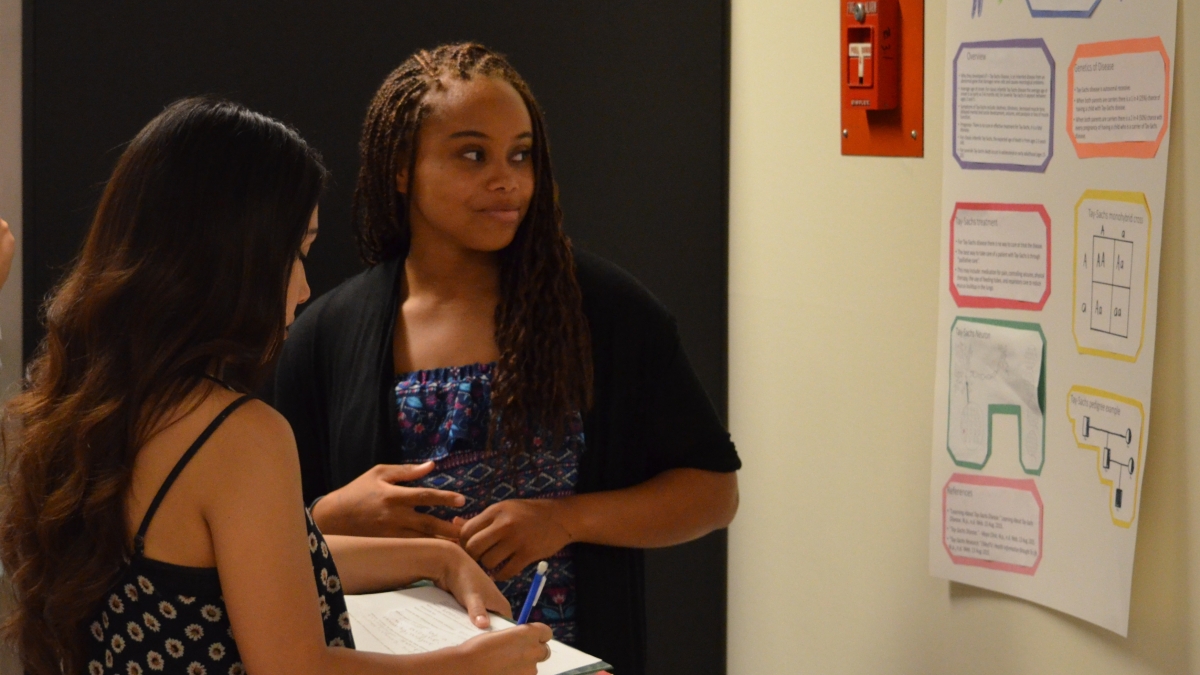BioBridge program gives ASU freshmen the tools to succeed

During Bio Bridge, students put together posters on diseases with genetic components as a way to practice their presentation skills and showcase what they learned during the program.
Photo by: James Baxter
As one of its core missions, Arizona State University strives to define itself not by who it excludes, but by who it includes. In an effort to fulfill that mission, the School of Life Science’s BioBridge program provides incoming students the tools they need to succeed in college before the semester even starts.
“We want all our students to succeed, including the diversity of students who struggled in high school for whatever reason,” said Miles Orchinik, professor with the School of Life Sciences and co-director of the BioBridge program. “BioBridge uses evidence-based strategies to engage students early in hopes that they will become the next generation of scientists.”
During the two-week program, participants meet students and faculty members, are introduced to resources on campus and learn strategies for succeeding in college. According to incoming freshman Tina Frechette, this program was a huge help in the transition from high school to college.
“Coming from high school, I am used to class periods where teachers lecture and students take notes only to regurgitate facts on a test the next week,” Frechette said. “During my two weeks in BioBridge, I was shown that the most effective way to learn is to discuss and ask questions in an active classroom.”
Guest lecturers are invited to speak about their research, which exposes students to a vast array of research efforts in the School of Life Sciences. According to Sara Brownell, co-director of BioBridge and assistant professor with the school, students had an opportunity to talk with those speakers and ask for information on everything from their careers to what being a scientist is like.
In addition to getting time in the classroom, students also participated in Camp Ignite — a three-day, community-building experience among the pines Northern Arizona. For Frechette, connecting with fellow students and faculty was her favorite part of the experience. Another freshman, Taneur Perez, enjoyed the friendship cultivated through fun activities.
“Honestly, we all became pretty close friends after spending so much time together,” Perez said. “The day we broke into two groups and performed skits on how you learn on a cellular level was absolutely hilarious and really beneficial to our learning, too.”
For Brownell, that bonding and growth as friends and scientists is why this program is so important.
“Interacting with the students is the best,” Brownell said. “They have such huge potential and it’s fantastic to see them grow over such a short period of time.”
With two successful years completed, the BioBridge program will be available again next year — offering incoming freshmen a head start on all the opportunities ASU School of Life Sciences has to offer.